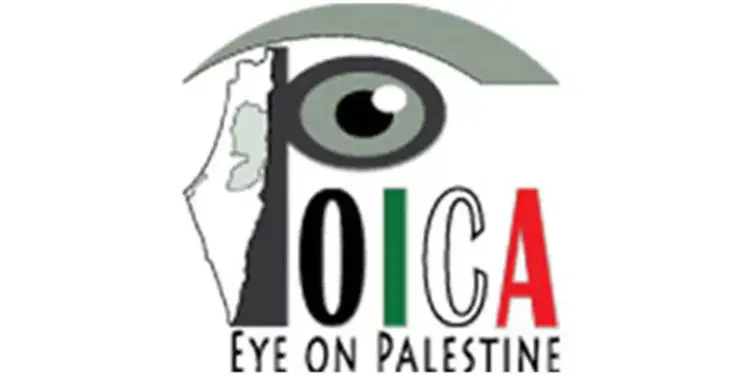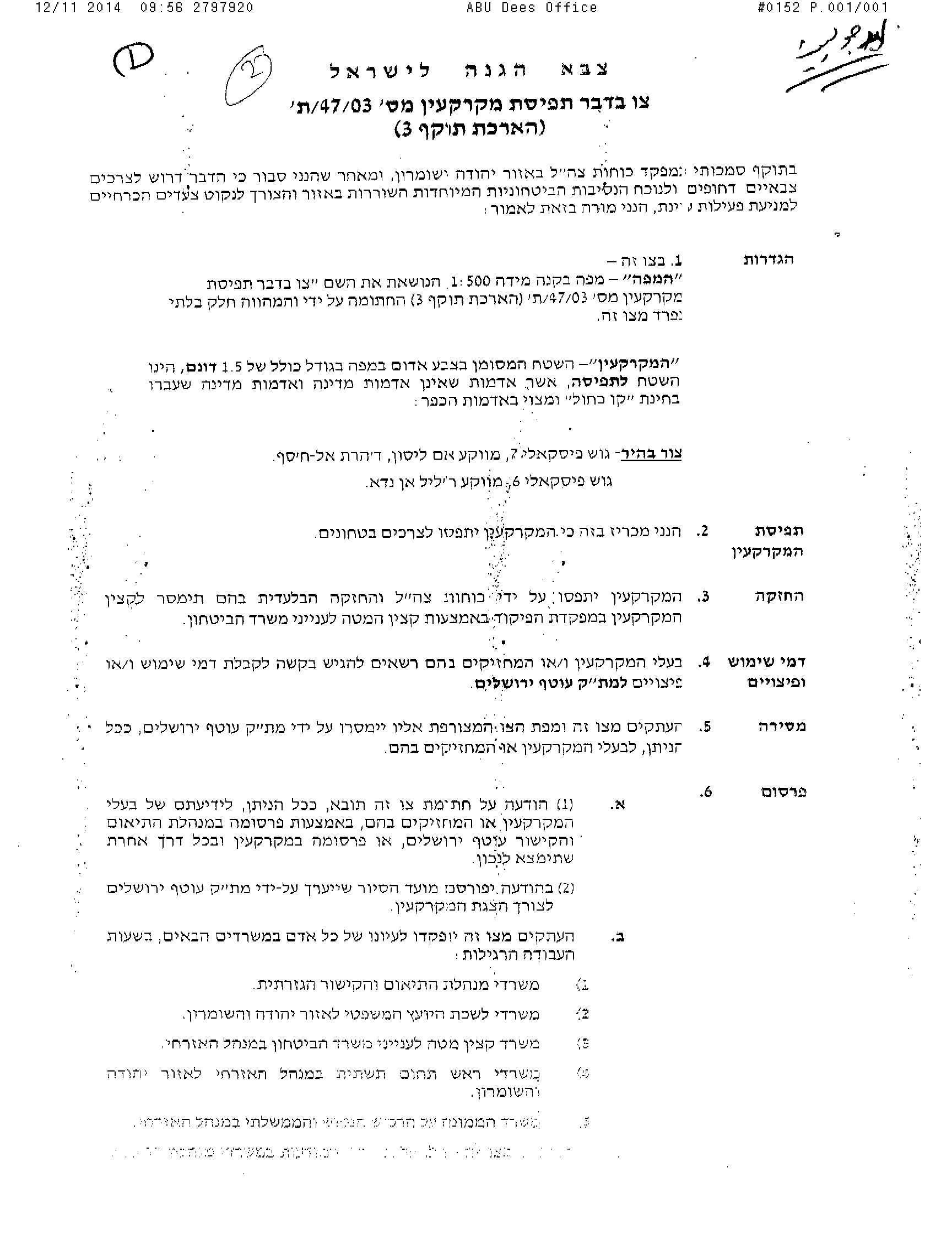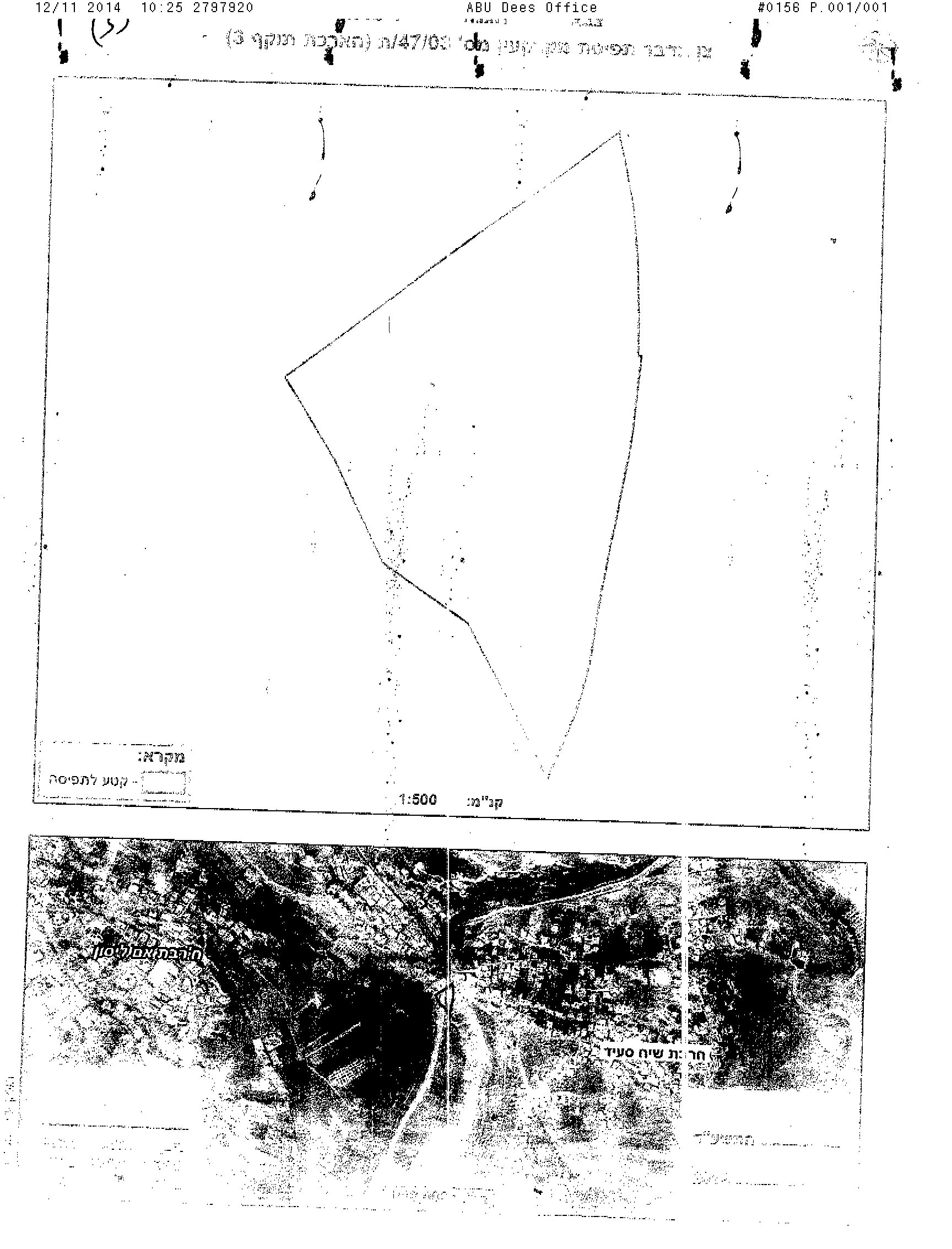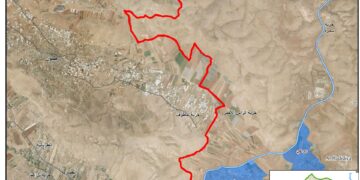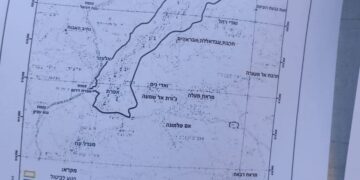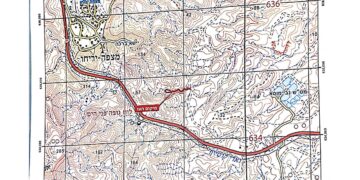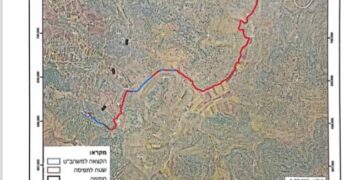On the 9th of September 2014, the so called “Israeli Defense Ministry” issued a military order No. 03/47/T to extend the validity of a previously issued military order (in 2003) for the confiscation of 1.5 dunums of Palestinian land in Ash Sheikh Saed village in occupied east Jerusalem. The order states the confiscation of land for “security needs”, with no further explanation of the type of these needs. Additionally, the military order sets the 31st of December 2017 as the final date for the Israeli army to implement its plan in the area. According to the issued military order, which was signed by Netzan Alon, the Israeli commander in charge of the Israeli Army in the occupied West Bank , lands in Um Leson and Dahret Al Heif locations in block No. 7 and Layl An Nada location in Block No. 6 were targeted in Ash Sheikh Saed village.
Residents of the aforementioned community were given a period of 7 days from the date the order was issued to file their objections against the seizure order at the District Coordination Offices (DCO) in Jerusalem outskirts. Note that only during the second week of November 2014 that residents of Ash Sheikh Saed received the order, almost 2 months after the order was issued, which means that, the period set for objection against the military order (7 days) already expired and Palestinian owners lost their right to object the military order as indicated. Photos 1 & 2 are copies of the military order in Hebrew.
Photo 1-2: A copy of the military order in Hebrew
Order Analysis
An Analysis conducted by the Applied Research Institute – Jerusalem of the military order and the attached maps showed that the targeted location is close to the current Israeli checkpoint set at the entrance of Ash Sheikh Saed village, which is the separation point between the West Bank and east Jerusalem these days, where only residents of Ash Sheikh Saed who hold Jerusalem ID cards and those who have permit to enter Jerusalem can only pass to Jerusalem through this military checkpoint. See Map 1
Map 1: the targeted land in Ash Sheikh Saed
It should be noted that both, the Israeli military checkpoint and the construction of the Israeli Segregation Wall are isolating the village from its neighbors such as Jabal Al Mukkabir, As Sawahrah Al Gharbiyeh, Um Tuba and the city of Jerusalem that is in addition to disrupting the unification of Palestinian families in the area.
Currently, the targeted land is being used as a parking lot for those who work inside Israel (from Jabal Al Mukkabir and Ash Sheikh Saed) and park their cars in the land. However, what Israel is planning in the area goes far beyond the idea of a parking lot, otherwise, Israel wouldn’t have extended the validity of the seizure order for this specific piece of land.
It is likely that Israel wants to turn this parking lot area into a crossing point in the future to increase the control over the movement of Palestinians accessing Jerusalem; at the same time, Israel plans to find an alternative route for Palestinians in the occupied East Jerusalem (especially those communities who were set outside the Jerusalem Municipality boundary by the wall, on the Palestinian side of the wall) and assign the current roads to the absolute use of the Israeli settlers.
Extension of Validity, what does it mean ???
The so called “Israeli Defense ministry” promoted a third extension of validity to the Israeli military order No. 03/47/T until the 31st of December 2017 so that Israel could complete its colonial plans in the area. And since the “Israeli ministry of Defense” didn't complete the construction of “its plans” in the area during the period designated in the first and second extension orders, a third extension of validity was issued to enable the Ministry of Defense to complete its plans.
To conclude
Israel, by all means, seeks to block the path to peace by continuing to issue military orders to extend the validity period of controlling Palestinian lands for the various colonial purposes such as building the segregation wall or constructing bypass roads or building in Israeli settlements … which are all considered as unilateral steps and constitute a clear and explicit breach to International laws and Human conventions, some of which are listed below:-
ARTICLE 47 of the fourth Geneva convention: “Protected persons who are in occupied territory shall not be deprived, in any case or in any manner whatsoever, of the benefits of the present Convention by any change introduced, as the result of the occupation of a territory, into the institutions or government of the said territory, nor by any agreement concluded between the authorities of the occupied territories and the Occupying Power, nor by any annexation by the latter of the whole or part of the occupied territory.”
ARTICLE 53 of the fourth Geneva convention: “ Any destruction by the Occupying Power of real or personal property belonging individually or collectively to private persons, or to the State, or to other public authorities, or to social or cooperative organizations, is prohibited, except where such destruction is rendered absolutely necessary by military operations.”
ARTICLE 147 of the fourth Geneva convention: “ Grave breaches to which the preceding Article [ Link ] relates shall be those involving any of the following acts, if committed against persons or property protected by the present Convention: wilful killing, torture or inhuman treatment, including biological experiments, wilfully causing great suffering or serious injury to body or health, unlawful deportation or transfer or unlawful confinement of a protected person, compelling a protected person to serve in the forces of a hostile Power, or wilfully depriving a protected person of the rights of fair and regular trial prescribed in the present Convention, taking of hostages and extensive destruction and appropriation of property, not justified by military necessity and carried out unlawfully and wantonly.”
Article 2. of the Universal Declaration of Human rights: “ Everyone is entitled to all the rights and freedoms set forth in this Declaration, without distinction of any kind, such as race, colour, sex, language, religion, political or other opinion, national or social origin, property, birth or other status. Furthermore, no distinction shall be made on the basis of the political, jurisdictional or international status of the country or territory to which a person belongs, whether it be independent, trust, non-self-governing or under any other limitation of sovereignty.”
Prepared by:
The Applied Research Institute – Jerusalem


